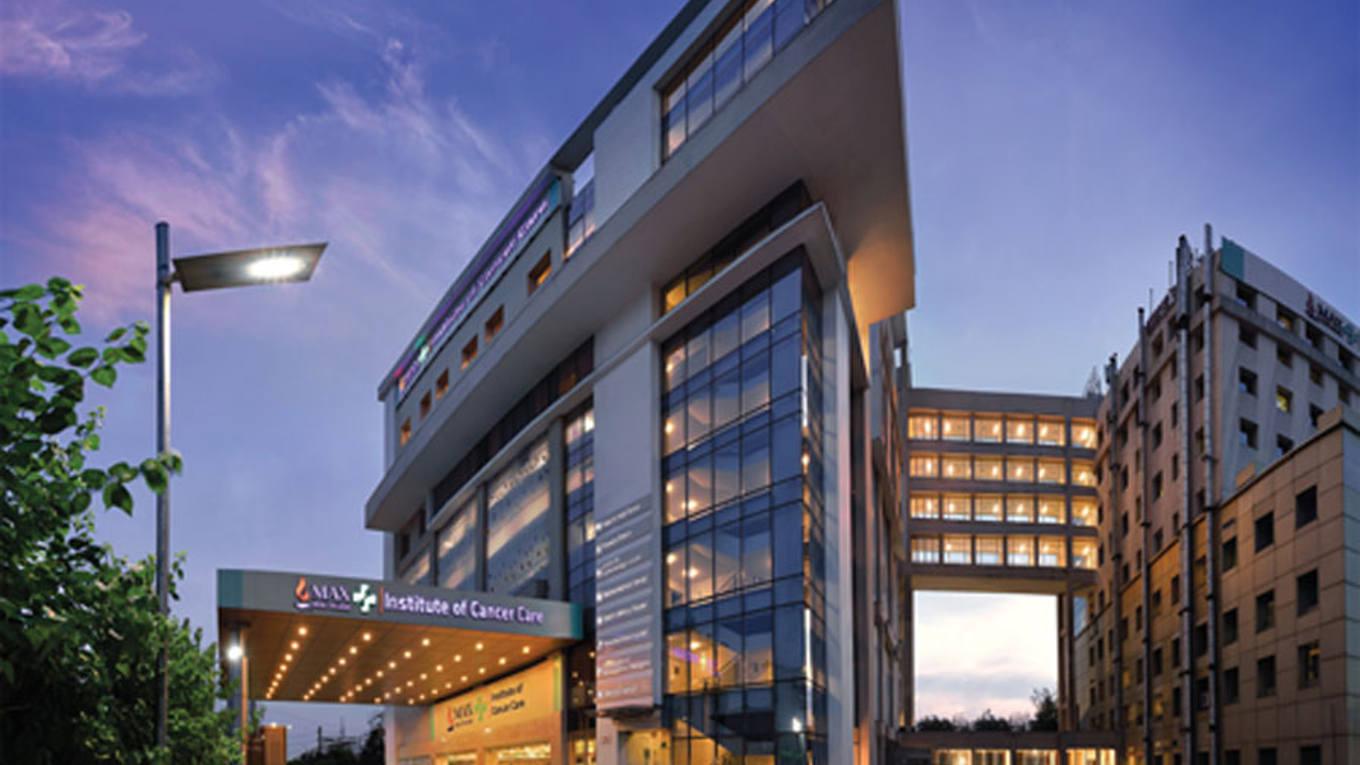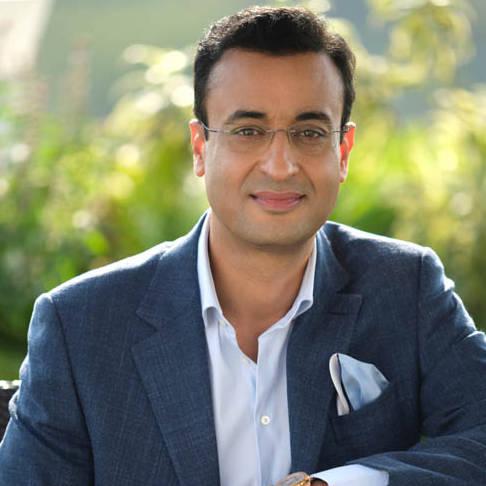This adds up to a total of 3,391 beds (886 belonging to Radiant Life Care and 2,505 beds from the original Max Hospitals). Of these, about 3,234 beds in all the hospitals put together are operational beds, that is, they are fully able to admit patients, while the remaining ones are built up and ready to become operational as and when the need arises. Most large hospitals follow this practice because hospital beds require a lot of supporting infrastructure, such as electrical fittings, air-conditioning, etc. Adding beds in piecemeal fashion involves much refitting and rebuilding which is not only very expensive but also disruptive to the existing facilities.
Viranna’s strategy
The listing ceremony of Max Healthcare Institute on Friday, 21 August is the latest of a series of events, which began in November 2017 with the appointment of Dr Shrey Viranna as group CEO of Life Healthcare, South Africa. Dr Viranna came with 12 years of experience with McKinsey, after moving out of clinical practice. By this time, he had extensive experience in Africa, India and the UK, advising on M&A transactions in healthcare. At that stage, Life Healthcare held a 49.7 per cent equity stake in Max India, which comprised of a chain of hospitals and other businesses.
In June 2019, about 18 months after the new CEO took up his position Life Healthcare announced that it had sold its 49.7 per cent stake in Max India to Radiant Life Care Pvt Ltd (the company that Abhay Soi had founded a few years before). The South African company stated that the deal was backed by the global equity investment firm, KKR (Kohlberg, Kravis, Roberts). Soon afterwards, Life Healthcare made additional acquisitions in the UK and elsewhere in keeping with Viranna’s corporate strategy.
Radiant Life Care was able to raise the amount of Rs2,136 crore for purchasing the Max India equity through a combination of equity and debt. For this KKR made a cash advance to Radiant after which there was a share swap between the two companies. According to the scheme of the share swap, Radiant shareholders will receive 9,074 shares of MHIL (Max Healthcare Institute) for every 10 shares of Radiant. Shareholders of Max India will get 99 shares of MHIL for every 100 shares they hold in Max India based on the share swap ratio. As part of the share purchase agreement, the Max India promoter group including former chairman Analjit Sigh and his associates were required to dilute their stakes from 12 per cent to 7 per cent, while KKR would acquire the remaining 5 per cent.
The next step had two components: one, the healthcare assets of Max India were hived off into a separate company known as Max Healthcare Institute, while the other businesses, that is Max Bupa (health insurance) and Antara Senior Living were placed with a new entity to be listed separately. At the time of this writing, the stock exchanges have suspended trading in Max India shares for ‘procedural reasons’. The second component was the merger of Radiant Life Care Pvt Ltd, with Max Healthcare.
With the second corporate action, Nanavati Hospital, Mumbai and BLK Superspecialty Hospital, New Delhi also became a part of the Max Healthcare chain. Besides, the share swap ensured that Soi and KKR together held a controlling stake in MHIL. At the end of the series of transactions, the shareholding pattern would be: KKR - 51.9 per cent, Soi - 23.2 per cent, Max promoter - 7 per cent and public - 17.8 per cent. The last would have to be increased to 25 per cent mandatorily within 12 months of the stock being listed. As an aside, the brand Radiant, which Soi describes as a B2B brand would cease to exist, now that the merger has been completed.
The two hospitals under the Radiant management until now were a ‘natural fit’ with the Max hospitals chain because the latter were also targeting the premium segment of patients. However the EBIDTA margin of the Max hospitals under the earlier management had slipped below 10 per cent in the last few years while that of BLK Hospital, hitherto the flagship of Radiant, had climbed to a healthy 19 per cent. The BLK record therefore comes to the financial performance of industry leaders such as Apollo (20-24 per cent).
Regarding the future strategy of the combined entity, Soi said they would try and reduce the proportion of government funded patients such as CGHS, etc from the current 35 per cent to just about 15 per cent in the coming four or five years. Compared with Narayana Health whose insured patients account for 22 per cent of the total, while another 18 per cent come from (government and other) schemes.
Since the package rates offered by these schemes are almost 40 per cent lower than the standard rates charged to individual self-funding patients, the revamp is definitely going to improve the company’s financial status.
Getting better
This year, of course is rather out of ordinary because of the Covid-19 pandemic and the consequent lockdown. Most healthcare establishments have suffered grievously with OPD footfalls being reduced by 80 per cent. Max has also felt the impact in substantial measure. Before March, when the countrywide lockdown was imposed, its bed occupancy was of the order of 70-80 per cent and this came down to just 28 per cent! In recent weeks, however, as the lockdown eased up gradually, the occupancy has returned to about 60 per cent. “It is not quite at pre-Covid levels but it is getting there,” Soi remarks.
Everyone in the healthcare understands that the lockdown could have forced a large number of nursing homes and small hospitals to face very severe financial constraints or perhaps even close down. Many of these 50-100 bed hospitals offering secondary care in Tier-II and III locations. Though these establishments would be ripe for acquisition, Max Healthcare would not even consider them.
Also, they would continue to focus on the metro cities, which they consider as attractive markets, even if this approach runs contrary to the strategy of several other hospital networks in the country. One reason for this is their focus on international patients, which was bringing in almost 20-25 per cent of the total revenue to BLK Superspecialty Hospital. This was higher than most other hospital networks.
An important consideration for the Radiant management earlier and now Max Healthcare would be that they are operating in two of the metros which are very well connected with the capital cities of several countries. Radiant’s decision to take over Nanavati was partially guided by this fact.
Yet they are very much focused on the Delhi-NCR region and some cities in North India, which they plan to continue with the Max hospitals network. Thus they have no plans of becoming a pan-India chain like Apollo Hospitals.
Soi and his management team have calculated the valuation of the combined entity as Rs7,242 crore. This week as trading begins in the Max Healthcare scrip, the first few sessions would show whether or not the investor community agrees with this valuation. If it does, and there is little reason to think otherwise, it will be one of the most important milestones in the journey of the organisation. ♦



































